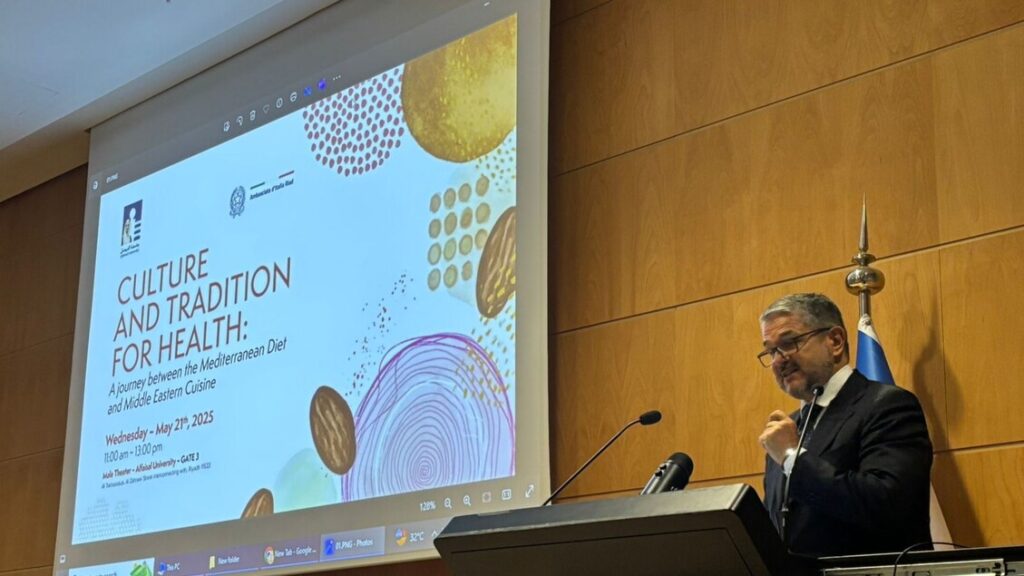‘Promoting traditional diets means preserving biodiversity, supporting local economies and encouraging healthy lifestyles’. This was stated by the Ambassador of Italy to Saudi Arabia, Carlo Baldocci, at the end of the high-level conference on nutrition entitled ‘Cultures and Traditions for Health: A Journey Between the Mediterranean Diet and Middle Eastern Cuisine’, held yesterday at the Alfaisal University in Riyadh.
‘The Mediterranean dietary heritage teaches us that true well-being lies in the harmony between people, food and nature, a message we are proud to share with our friends in Saudi Arabia,’ Ambassador Baldocci added. A concept that summed up the thoughts expressed by the scientists who spoke, who emphasised the central role of food in a country’s identity, touching on topics such as health, economy, environment and culture.
The experts present agreed that the relationship between food and health does not end with macronutrients, vitamins or minerals: culture and psychology also play a fundamental role. And they rejected the uniform approach to nutrition promoted by some international health institutions, pointing out that each community has its own traditions, and that it is ineffective, if not harmful, to try to achieve health results by forcing consumers away from their food culture.
Italian Deputy Minister for Business and Made in Italy, Valentino Valentini, highlighted the value of traditional diets as exemplary models of health and sustainability. “These diets have evolved over the centuries through a process of natural selection that has balanced the needs of consumers, producers and the environment,” he said. “The use of local resources naturally reduces transport costs and promotes the conservation of biodiversity.”
“Science must remain the basis of public health strategies,” concluded Roberta Re, director of Cambridge Food Science and moderator of the event. “However,” she continued, “science alone cannot suffice. Local traditions, cultural habits and individual preferences are not barriers to health, but an integral part of it. Effective and sustainable nutrition policies must be based on scientific evidence, but also be culturally respectful, recognising that we eat in community, guided by taste and identity’.
ALL RIGHTS RESERVED © Copyright ANSA

